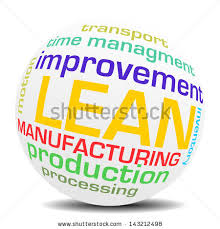– Part 2 –
 Recipes for implementation and lessons learned from failures have been reported; the common threads of these were that organizations need to change at a behavioral and cultural level and this should be translated directly into an endless process of continuous improvement. Despite these being framed in the realm of tangible strategic business direction, “cultural changes” and “endless improvement” are abstract concepts; furthermore, these principles imply that there is no horizon for successfully completing the task because the improvement process is infinite.
Recipes for implementation and lessons learned from failures have been reported; the common threads of these were that organizations need to change at a behavioral and cultural level and this should be translated directly into an endless process of continuous improvement. Despite these being framed in the realm of tangible strategic business direction, “cultural changes” and “endless improvement” are abstract concepts; furthermore, these principles imply that there is no horizon for successfully completing the task because the improvement process is infinite.
Another crucial aspect that should be considered is that lean management practices should be considered under the umbrella of their cultural origin. The main three characteristics of Japanese management thinking are harmony and group loyalty, consensus in decision-making, and lifetime employment, all encompassed in the concept of “respect for people.” This concept was not historically understood in the USA where companies only focused on “continuous improvement.”
We submit therefore that the main sources of failures mentioned above are not the technicalities related to lean implementation, but principles that constitute a larger puzzle. Clearly there are stages and steps in implementation of the lean management culture, such as prioritizing projects and areas that should be restructured, but the larger picture that implies cultural changes sustaining an endless process may be too intricate for many companies.
So, is lean management doomed to be successful only in a handful of companies that are already positioned for the deep structural changes required by this philosophy, or is there a solution that can lead others to benefit from it? Is lean a medicament for the healthcare industry that faces unprecedented technological and financial challenges? In order to address these questions, we have to explore territories that at first glance may seem unrelated.
The Pareto Principle in Lean Management
The Pareto Principle is referred to as the 80–20 rule or the law of the vital few. The Italian economist Vilfredo Pareto noted around 1906 that 80% of the land in Italy was held by 20% of the population. He confirmed his findings when he analyzed properties in other countries, but, most interestingly, he also noted that the rule also applies in biology; it was Pareto who noticed that 20% of the pea pods in his garden produced 80% of the peas. In time, it became evident that the axiomatic principle applies in economics, customer relations, software development, etc.
In 1937, Joseph Juran stated that this principle also applied to defects, concluding that 80% of the problems are caused by 20% of the defects—and he named this effect the Pareto Principle. A later example was provided by Microsoft that observed that by fixing 20% of the most reported bugs, 80% of the software crushes will be eliminated.
Because most decisions are made under uncertainty, the vital few must be identified if a program of improvement is to succeed. The importance of the vital few lies in the fact that nothing of significance can happen unless it happens to this (20%) segment.
Lean Management in the Healthcare Industry
It was the same Joseph Juran who linked manufacturing and the healthcare industry; he wrote: “as the health industry undertakes…change, it is well advised to take into account the experience of other industries in order to understand what worked and what has not. …
End of Part 2
This concludes Part 2 of the 4-part series, Lean Management for Healthcare Organizations. If you’d like to learn more about lean management and how it can benefit your organization, contact the experts at BHM Healthcare Solutions today.
Email: re*****@*******pc.com
Phone: 1-888-831-1171
or click on the “request information” below

Continue to Part 3 of Lean Management for Healthcare Organizations.





